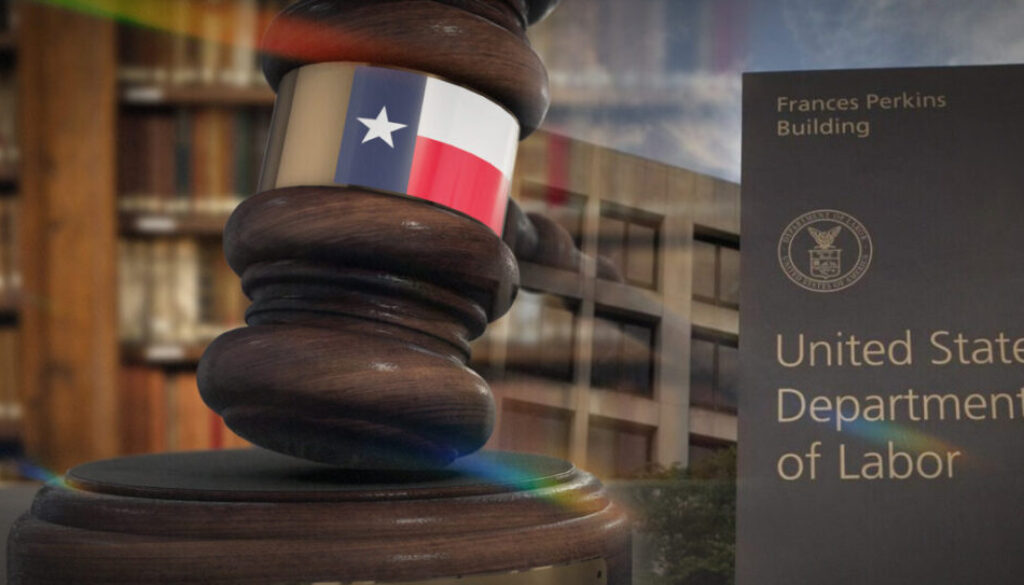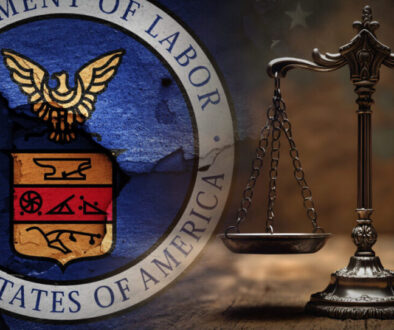Texas judge weighs ‘party restrictive’ injunction to halt DOL fiduciary rule
A Texas judge could decide this week on a preliminary injunction request to freeze the Department of Labor Retirement Security Rule, its latest attempt to expand fiduciary duty to insurance agents.
Judge Jeremy D. Kernodle heard oral arguments Tuesday and questioned attorneys for both sides on the possibility of an injunction for a specific segment of the industry: insurance agents.
Representing the plaintiffs, attorney Don Colleluori of Figari & Davenport conceded that his clients are focused on insurance agents. A second lawsuit, filed by several trade associations in another Texas federal court, also challenges other aspects of the rule pertaining to advisors.
Still, Colleluori argued for a blanket injunction for all, citing the injunction granted by the Court of Appeals for the Fifth Circuit in the Career Colleges & Schools of Texas v. U.S. Department of Education.
Career Colleges sued the Department of Education over its 2022 “borrower defense” statute. The Fifth Circuit reversed a lower-court decision in April 2024. In vacating the law, the court determined that “it does not need to be party restrictive,” Colleluori explained, postponing enforcement of the rule against any institution that receives federal funds.
“There are good reasons why in this case, it should be universal,” Colleluori said. “Restricting it to some parties and not others creates this patchwork that will just lead to further confusion about how the rule can or can’t be applied to whom.”
“It seems like the law is developing in this area,” Kernodle said, “but one thought I have is – not necessarily in this particular case, but in other cases – … just to what extent a stay that is limited to the parties is doable. If it’s not doable, then maybe it just ought to apply to everybody.”
‘Plaintiff specific’ injunction
Colleluori represents the Federation of Americans for Consumer Choice, which filed its lawsuit May 2. FACC asked Kernodle last month to issue a ruling by July 26 at the latest.
Representing the government, attorney Alexander Ely from the Department of Justice sought to save as much of the rule as possible if an injunction is the decision.
“There’s obviously some movement in this area of the law, but our position in the first instance is that if you were to issue an injunction, we would respectfully submit that plaintiff-specific relief would be appropriate,” he said. “I think that’s particularly the case in the insurance context where there may be variations in state law, there may be different degrees to which parties are regulated that have suffered irreparable harm from the regulation.”
The DOL Retirement Security Rule was published April 25 in the Federal Register. It extends a fiduciary standard of care to most annuity transactions. FACC is joined by several independent insurance agents in the lawsuit filed in the Eastern District of Texas.
Arguing against Chamber precedent
Colleluori went first and summarized a familiar argument from DOL rule foes: that any DOL fiduciary rule must abide by precedent set by a 2018 ruling from the Fifth Circuit.
With that decision, a three-judge panel ruled that the 2016 fiduciary rule strayed too far from the common-law definition of the term fiduciary, which hinges on the existence of a relationship of “trust and confidence” with the client. Agents who merely sell products to their clients do not have this relationship, the court concluded.
Congress passed the Employee Retirement Income Security Act of 1974 and a subsequent “five-part test” was developed to establish fiduciary duty, Colleluori reminded the judge. Insurance agents are regulated by the states and a best-interest standard adopted in 2020 by the National Association of Insurance Commissioners is in place in nearly every state, he added.
“What they tell us now is that by phrasing a criteria this way in the 2024 fiduciary rule, the DOL is ensuring that every single sales transaction with a retirement investor will be fiduciary in nature, so long as the agent or broker is doing what they’re legally required to do under their own regulatory standards,” Colleluori said. “I suppose if one was operating as a ‘Wolf of Wall Street’ or something, somebody who’s not following any rules, then that might be a different question. That’s not what we’re talking about here.”
During his turn before Kernodle, Ely sought to distance the DOL from its 2016 effort. He pointed out that it was a very different rule that relied on a Best Interest Contract Exemption to enable producers to get paid for selling covered products.
“The real problem with the 2016 rule is that because it swept so broadly and included any transaction with between an investment professional and a retirement investor and didn’t ask whether the parties had, through their conduct, entered into a relationship of trust and confidence, it swept in individuals that Congress could not have possibly considered to be fiduciaries when it enacted ERISA,” Ely said.
‘Trust and confidence’
Ely painted a real-world picture of how a one-time retirement plan rollover meets the “trust and confidence” barometer set by the Fifth Circuit.
“Suppose you’re an investor and you’ve dealt with the same insurance agent for 20 years on a variety of insurance products,” Ely explained. “You haven’t dealt with the insurance agent with respect to your 401(k) or any other investment covered by ERISA, but you do have a relationship with them. Then you had to go back to them, to work with them on rolling over your 401(k) plan into an IRA. That’s the first ERISA transaction.
“Under plaintiff’s framing, that’s … excluded, but you have this long relationship that predated the time of that one-time ERISA transaction.”
Kernodle concluded the one-hour hearing with no indication on when he might issue his decision.
© Entire contents copyright 2024 by InsuranceNewsNet.com Inc. All rights reserved. No part of this article may be reprinted without the expressed written consent from InsuranceNewsNet.com.
The post Texas judge weighs ‘party restrictive’ injunction to halt DOL fiduciary rule appeared first on Insurance News | InsuranceNewsNet.




